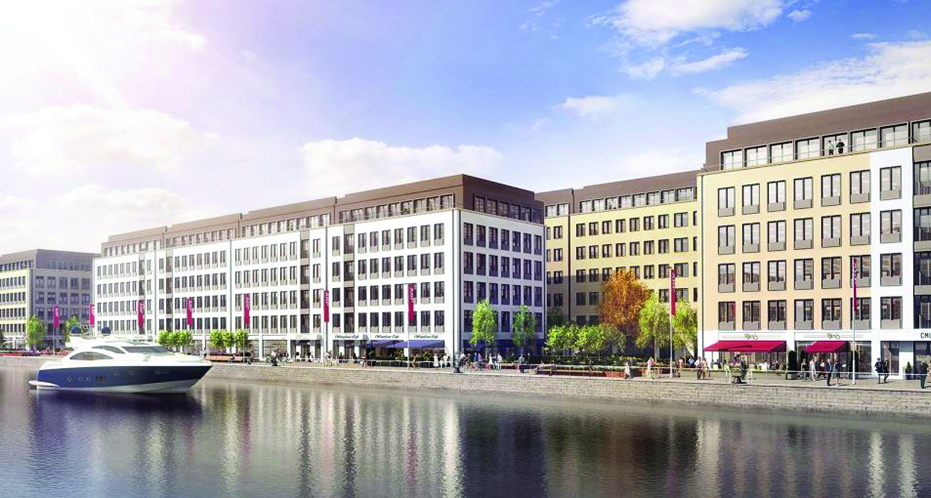Driving commercial and political engagement between Asia, the Middle East and Europe
Driving commercial and political engagement between Asia, the Middle East and Europe
Driving commercial and political engagement between Asia, the Middle East and Europe

John Miu, Chief Operating Officer,
ABP Royal Albert Dock London
 We are living at a time of unprecedented change. The digital revolution is transforming global trade, with technologies such as blockchain redesigning supply chains and artificial intelligence driving previously-unimaginable efficiencies.
We are living at a time of unprecedented change. The digital revolution is transforming global trade, with technologies such as blockchain redesigning supply chains and artificial intelligence driving previously-unimaginable efficiencies.
Digital technologies have made the world a much smaller place, giving businesses access to global markets and enabling growth at breath-taking speed. It’s no coincidence that the biggest companies to emerge over the last 20 years have been tech companies.
The changes that will come with the digital revolution are wide-ranging, but perhaps the biggest change will be the personalisation of commerce.
I believe the future is one of bespoke services and products, tailored to the individual consumer. This will be the trend across all businesses and across all sectors.
Accessing the digital technologies required to enable this personalisation will therefore be crucial to success in any future sector. This means businesses will need to work ever more closely with tech companies. One way this can be achieved is through the creation of tech hubs, and I believe we will see more of these emerging over the upcoming decades.
Tech hubs aren’t simply about Silicon Valley-style innovation and R&D. Rather, they are spaces where business and technology can come together to solve commercial challenges and create new opportunities. It is my prediction that tech hubs will become a common feature of the future trade landscape. And at our Royal Albert Dock development in London, we are building one.
ABP isn’t a tech firm, but we recognised a long time ago that digital technologies will be at the heart of future commerce. There is a need, therefore, to create the conditions for seamless integration between entrepreneurs and the digital capabilities they will require.
We are developing a £1.7 billion business park in East London that will enable a range of businesses from multiple sectors to engage with innovation while accessing global markets.
That is what we are creating at RAD – an environment where business and innovation thrives.
For me, there are three key ingredients that are required to create a successful tech hub.
The first is connectivity. I mean this in the broadest sense, beyond high-speed internet connections and data centres, although these are of course important. Rather, a successful tech hub will be effortlessly connected with the sectors it serves and the global markets it trades in.
In RAD’s case, our enterprises will enjoy physical links with high-speed rail to the major financial services centres at nearby Canary Wharf and the City of London, and we are part of the creative hubs of the East End. And the expanding London City Airport – which already reaches more than 40 European cities in under two hours and will open routes to Dubai, Moscow, Tel Aviv and Mumbai – is on RAD’s doorstep.
The second key ingredient for success is talent. A tech hub is only as successful as the people it attracts, which means providing services beyond office space. Leisure facilities, entertainment and inspiring spaces in which to live and relax are key to attracting and retaining talent. East London is the part of the city where most of those with tech skills choose to live, and that is recognised globally. Tech companies from across the world are establishing in East London in order to tap into that talent.
The third key factor for creating a successful tech hub is affordability. Many enterprises taking advantage of tech hubs will be small and conscious of their overheads. Given that most startups take 24 months until they become successful, finding the correct pricing balance is crucial. They all want to put as much of their investment into their businesses as possible and as little on rent.
There are of course many other elements that combine to create a tech hub that works, including building a professional community at a local level and fostering an environment which encourages innovators at a policy level. The latter instance means creating a competitive digital economy where trial and error – the bedrock of innovation – does not see those who fail prevented from trying again.
As the global trade order shifts and digitalisation becomes ever more integrated with commerce, the need for commercial enterprises and tech companies to work together will become ever more urgent.
I believe it will be the cities and regions which help facilitate and nurture such collaboration that will excel in the digital revolution.
With RAD, London will be one of them.
